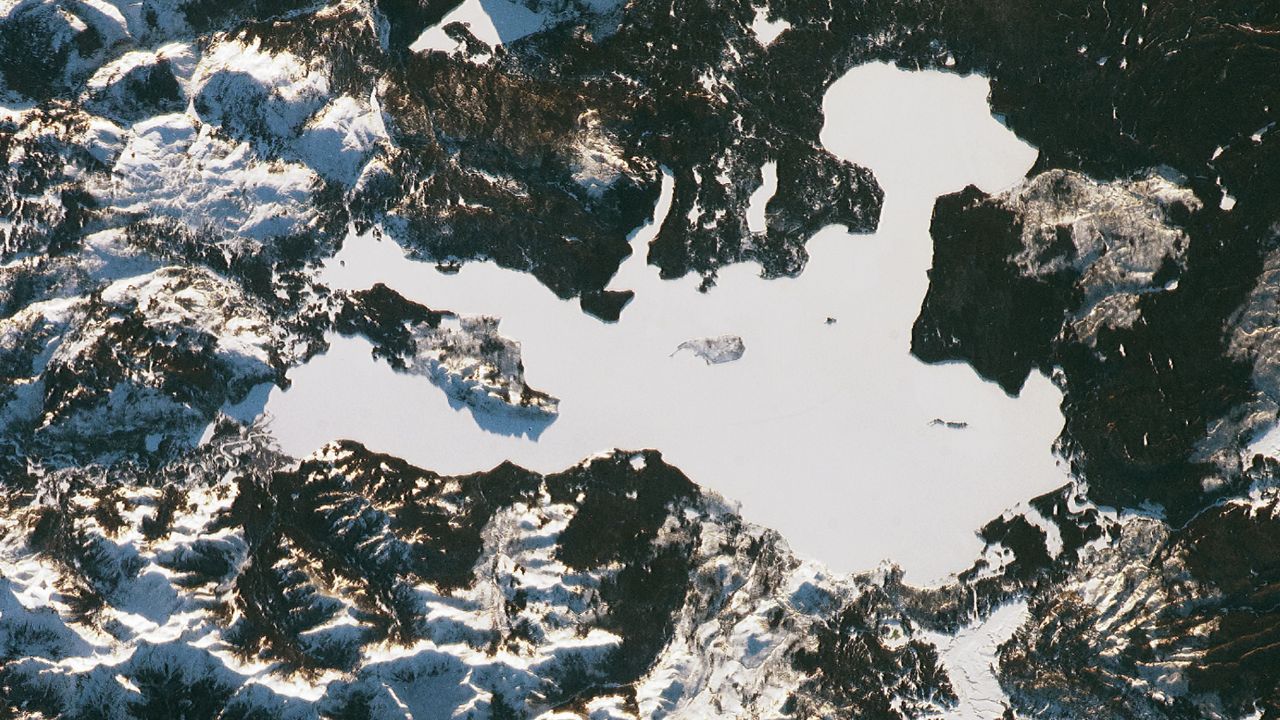
HAEJU, North Korea — In a pediatric hospital in North Korea’s most productive farming province, children lay two to a bed. All showed signs of severe malnutrition: skin infections, patchy hair, listless apathy.
“Their mothers have to bring them here on bicycles,” said duty doctor Jang Kum Son in the Yellow Sea port city of Haeju. “We used to have an ambulance but it’s completely broken down. One mother traveled 72 kilometers (45 miles). By the time they get here, it’s often too late.”
It’s also getting late for NorthKorea to get the massive amount of food aid it claims to need before the harsh winter sets in. The country’s dysfunctional food-distribution system, rising global commodities prices and sanctions imposed over Pyongyang’s nuclear and missile programs had contributed to what appears to be a hunger crisis in the North, even before devastating summer floods and typhoons compounded the emergency.
to get the massive amount of food aid it claims to need before the harsh winter sets in. The country’s dysfunctional food-distribution system, rising global commodities prices and sanctions imposed over Pyongyang’s nuclear and missile programs had contributed to what appears to be a hunger crisis in the North, even before devastating summer floods and typhoons compounded the emergency.
 to get the massive amount of food aid it claims to need before the harsh winter sets in. The country’s dysfunctional food-distribution system, rising global commodities prices and sanctions imposed over Pyongyang’s nuclear and missile programs had contributed to what appears to be a hunger crisis in the North, even before devastating summer floods and typhoons compounded the emergency.
to get the massive amount of food aid it claims to need before the harsh winter sets in. The country’s dysfunctional food-distribution system, rising global commodities prices and sanctions imposed over Pyongyang’s nuclear and missile programs had contributed to what appears to be a hunger crisis in the North, even before devastating summer floods and typhoons compounded the emergency.The regime’s appeals for massive food aid have gone mostly unanswered by a skeptical international community. Only 30 percent of a United Nations food aid target for North Korea has been met so far. The United States and South Korea, the two biggest donors before sanctions, have said they won’t resume aid until they are satisfied the military-led communist regime won’t divert the aid for its own uses and progress is made on disarmament talks.
and South Korea, the two biggest donors before sanctions, have said they won’t resume aid until they are satisfied the military-led communist regime won’t divert the aid for its own uses and progress is made on disarmament talks.
 and South Korea, the two biggest donors before sanctions, have said they won’t resume aid until they are satisfied the military-led communist regime won’t divert the aid for its own uses and progress is made on disarmament talks.
and South Korea, the two biggest donors before sanctions, have said they won’t resume aid until they are satisfied the military-led communist regime won’t divert the aid for its own uses and progress is made on disarmament talks. South Korea also says the North is exaggerating the severity of its food crisis. Visiting scholars, tourists and charity workers have sent out conflicting views about it.
South Korea also says the North is exaggerating the severity of its food crisis. Visiting scholars, tourists and charity workers have sent out conflicting views about it.The U.N.’s Food and Agricultural Organization (FAO), for instance, said last month after visiting the North that “the damage was not so significant.” Another U.N. body, the World Food Programme, which has a regular presence in the North, warned in March of growing hunger. The sharp divergence of views is one reason why the U.N.’s emergency relief coordinator will visit this month to assess the situation.
North Korea’s Economy and Trade Information Center, part of the foreign trade ministry, invited Alertnet to see the extent of the crisis on a rare reporting trip to its rice bowl in South Hwanghae province in the southwest.
Alertnet, a humanitarian news service run by the ThomsonReuters Foundation which covers crises worldwide, saw evidence of alarming malnutrition and damaged crops, but also signs of some promise for the coming rice harvest.
Foundation which covers crises worldwide, saw evidence of alarming malnutrition and damaged crops, but also signs of some promise for the coming rice harvest.
 Foundation which covers crises worldwide, saw evidence of alarming malnutrition and damaged crops, but also signs of some promise for the coming rice harvest.
Foundation which covers crises worldwide, saw evidence of alarming malnutrition and damaged crops, but also signs of some promise for the coming rice harvest.Although tightly controlled by government officials, an Alertnet reporter and Reuters photographers and video journalists were able to conduct a week-long trip into the South Hwanghae region. The visit included rare access to collective farms, orphanages, hospitals, rural clinics, schools and nurseries.
The regime’s motive in granting the access appears to be to amplify its food-aid appeals. North Korean officials at first asked Alertnet to reach out to its subscriber base to mobilize help–and at one point asked the Thomson Reuters Foundation for a donation. Alertnet declined, saying all it could do is visit and report on the situation.
The picture the regime presented in South Hwanghae was largely one of chronic hunger, dire healthcare, limited access to clean water and a collapsing food-rationing system, all under a command economy that has been in crisis since the collapse of the Soviet Union 20 years ago threw North Korea into isolation.
In one orphanage in Haeju, 28 children huddled together on the floor of a small clinic, singing “We have nothing to envy” — an anthem to North Korea’s longstanding policy of juche, or complete self-reliance, that has made this one of the most closed societies on earth.
Measurements taken of each child’s mid-upper arm with color-coded plastic bracelets — a standard test for malnutrition — showed 12 were in the orange or red danger zones, meaning some could die without proper treatment.
Nutrition experts from Medecins Sans Frontieres (MSF), who accompanied AlertNet, found similar results among children at other institutions. But they stressed their findings were not statistically representative.
 At an orphanage in Hwangju town, across the provincial border in North Hwanghae province, 11 of 12 children in the clinic were critically malnourished. They looked to be no more than three or four years old, but orphanage staff insisted they were eight, citing severe stunting due to malnutrition.
At an orphanage in Hwangju town, across the provincial border in North Hwanghae province, 11 of 12 children in the clinic were critically malnourished. They looked to be no more than three or four years old, but orphanage staff insisted they were eight, citing severe stunting due to malnutrition.“I’ve never seen stunting like this before, not ever — not even in Ethiopia,” said Delphine Chedorge, deputy program manager of emergencies for MSF France.
In the orphanage’s kitchen, the only food for the 736 children was maize and a thin soup made of onion and radish leaves. Cooks said they had no oil, sugar or protein — vital ingredients for adequate nutrition.
“They’ve had to reduce the minimum height limit for the army by 2 cm,” a Western aid worker in Pyongyang said, speaking of stunting.
North Koreans on average live 11 years less than South Koreans due mainly to malnutrition, according to U.N. health indicators.















.jpg)


































1 σχόλιο:
ΙΣΛΑΜΙΣΤΕΣ ΚΑΙ ΣΤΡΑΤΟΣ ΕΠΙΤΙΘΕΝΤΑΙ ΣΤΟΥΣ ΧΡΙΣΤΙΑΝΟΥΣ ΤΟΥ ΚΑΙΡΟΥ – 24 ΧΡΙΣΤΙΑΝΟΙ ΚΟΠΤΕΣ ΝΕΚΡΟΙ
ΔΙΑΒΑΣΤΕ ΚΑΙ ΕΔΩ
http://1greek.wordpress.com/2011/10/11/%ce%b9%cf%83%ce%bb%ce%b1%ce%bc%ce%b9%cf%83%cf%84%ce%b5%cf%83-%ce%ba%ce%b1%ce%b9-%cf%83%cf%84%cf%81%ce%b1%cf%84%ce%bf%cf%83-%ce%b5%cf%80%ce%b9%cf%84%ce%b9%ce%b8%ce%b5%ce%bd%cf%84%ce%b1%ce%b9-%cf%83/
Δημοσίευση σχολίου